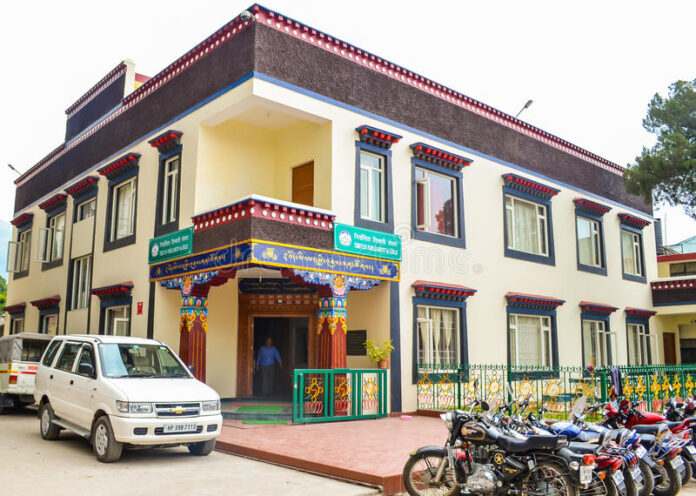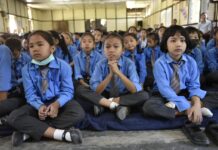(TibetanReview.net, Jun08’21) – The post-election process of constituting the 17th Tibetan Parliament in Exile (TPiE) has begun on Jun 8 morning with Mr Dawa Tsering, the re-elected candidate with the longest service as TPiE member, being administered his oath of office as the pro tem Speaker (temporary speaker who presides over the first meeting of the TPiE after the general elections) by the Chief Justice Commissioner Mr Sonam Norbu Dagpo this morning. But questions arise regarding how some of the members will take their oath and their potentially provocative implications.
Due to the pandemic curfew being extended by the state government till Jun 14, others who attended the ceremony only included the Justice Commissioners of the Tibetan Supreme Justice Commission (TSJC) Mr Karma Dadul and Mr Tenzin Lungtok as well as Secretary General Tashi Gyatso Shadrong of the TSJC.
A meeting of the elected candidates to the 17th TPiE, which was scheduled to be held on Jun 7, was cancelled due to the pandemic curfew restrictions.
The other elected candidates were then required to take their oath of office from the pro tem Speaker as prescribed by the Charter of Tibetans in Exile.
However, a circular issued to the newly elected candidates by the parliament’s secretariat detailing the day’s event was reported to state that the elected candidates could take their oath either before the pro tem Speaker or before a portrait of HH the Dalai Lama.
Whether the Parliamentary Secretariat which announced the option has the authority to allow a mode of taking the oath not provided in the Charter remains a moot question
Those expected to take the oath before a portrait of HH the Dalai Lama were said to be the Dotoe and religious seat candidates, besides one U-Tsang candidate, who do not accept the authority of any of the Justice Commissioners of the TSJC.
The justice commissioners had resumed their post on May 24, saying they never recognized the 16th TPiE’s illegal Mar 25 resolution to remove them from office and had only recused themselves from their role as they had become an interested party in any possible case for the resolution of that dispute.
Whether the TSJC panel members demitted their office even as they unequivocally rejected the Mar 25 resolution of the 16th TPiE as illegal, or merely recused themselves, as they said, remains another moot question.
Further questions also arise. Will the members who take their oath of office before a portrait of HH the Dalai Lama recognize the legitimacy of the other members who had taken their oath from the pro tem Speaker whose legitimacy they do not accept? Will they accept the legitimacy of the Sikyong who took his oath of office from the Chief Justice Commissioner of the TSJC? Will they boycott the Parliamentary sessions or proceedings on account of them, or try to prevent the Sikyong and those members from taking their seats in the parliament?
And if they don’t do any of these things and choose to sit with them, how will they justify themselves? That depends on whether their move is political or a matter of principle, misguided as it may be.
And after the 16th TPiE’s illegal resolution of Mar 25, is it all right for the Parliamentary Secretariat to go along with it? That’s another moot question.
Who then is to say when it is all rights to follow the Charter and when it is all right not to follow it? Has the Charter lost its sanctity? Its legitimacy?






